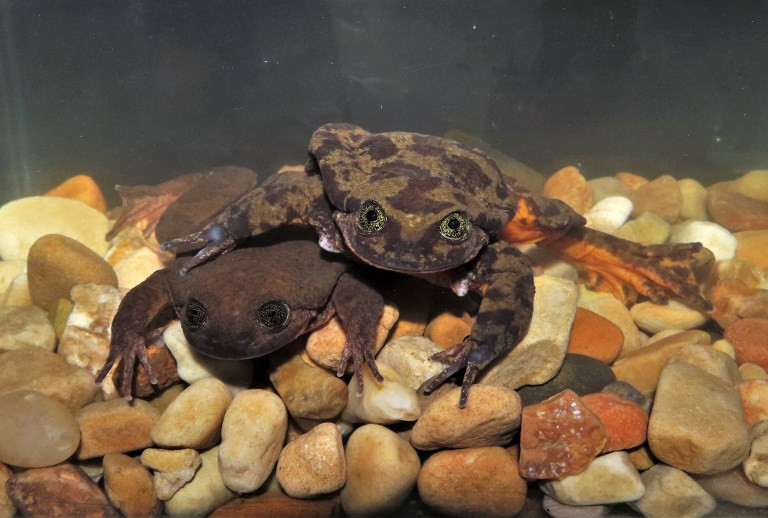Popular Reads
Top Results
Can't find what you're looking for?
View all search resultsPopular Reads
Top Results
Can't find what you're looking for?
View all search resultsSpecies conservation: Some success, many failures
Change text size
Gift Premium Articles
to Anyone
W
ith as many as a million species threatened with extinction due to mankind's destruction of the planet, there have been scant conservation successes in recent years.
Some creatures, such as the giant panda and the red tuna, have fared well, while efforts to save others, including sharks and cedars, have largely missed the mark.
Ahead of the release of a landmark UN report on the state of Earth's biodiversity, here are some successes and failures in conservation efforts.
Giant panda
The giant panda, native to China, has been on the IUCN's "Red List" of endangered species for years. Determined to protect its national treasure, the Chinese government began replanting the bamboo the bears feed on exclusively and organised funding for zoos to host pandas.
The panda has become something of a totem for species preservation, instantly recognized the world over. It however remains classified as "vulnerable" with less than 2,000 thought to remain in the wild.
Bearded vulture
The bearded vulture, which can attain a three-meter wingspan, had almost disappeared in Europe by the start of the 20th Century. But 30 years ago it became part of a reintegration program in the mountains of France. Its population in France currently sits at around 60 couples.
Red tuna
The red tuna, a delicacy particularly in Japanese cuisine, was decimated by decades of overfishing in the Mediterranean and Atlantic before being added to a UN protected species list.
New quotas and protection measures have allowed stocks to largely recover, though there are fears for the long-term viability of other tuna breeds, including big eye and bluefin.
Read also: Giant tortoise thought extinct is found on Galapagos
Sehuencas water frog
Until recently this frog, indigenous to Bolivia, was thought to be on the way to extinction with just a single known specimen, a male named Romeo.
But an expedition last year discovered a living female specimen, who was named -- you guessed it -- Juliet. It is hoped that the pair will mate and save one of the world's most imperiled species.
Cedars
The mighty cedar trees of Lebanon are mentioned in the Bible and have clung to the mountains along the eastern Mediterranean for centuries.
But as climate change makes water cycles less dependable and brings more pests such as insects, the "Cedars of God" are under threat like never before.
In 2012 Lebanon's agriculture ministry launched a program to plant 40 million cedars by 2030. The tree is still classified as "vulnerable" by the IUCN.
Corals
Coral reefs cover less than 0.2 percent of the ocean bed but support around 30 percent of all known marine life. They are under threat from warming seas, which kill the coral and prevent reefs regenerating, as well as pollution, invasive species and tourism.
The UN's intergovernmental panel on climate change in a landmark report last October warned that even with just 1.5 Celsius (2.7 Fahrenheit) of global warming could see 70-90 percent of Earth's coral reefs vanish.
Sharks
Sharks have stalked the oceans for more than 400 million years but they are now under threat from an even more devastating predator -- humans.
Of the 59 species of rays and sharks evaluated so far by the IUCN, 17 are classified at risk of extinction as overfishing and habitat destruction continues apace.
Galapagos tortoise
When Lonesome George, a 90-year-old giant tortoise in the Galapagos Islands, died in 2012, so did his species.
The islands' giant tortoise population was ravaged by pirates and poachers in the 18th Century and the creatures -- which lived to over 100 and took decades to reach maturity -- could not reproduce quick enough to save themselves.











